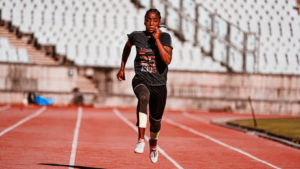
Endurance athletes push their bodies to the limit, requiring not just physical training but also optimal nutrition to perform at their best. Whether they’re running marathons, cycling long distances, or swimming for hours, what they eat can significantly impact their performance and recovery.
Fueling the body with the right nutrients helps maintain energy levels, prevent injuries, and speed up recovery times. From balancing macronutrients to staying hydrated, the right dietary choices can make all the difference. In this article, we’ll explore essential nutrition tips that can help endurance athletes maximize their potential and stay ahead of the competition.
Nutrition Tips For Endurance Athletes
Nutrition impacts endurance athletes significantly by supporting sustained energy levels. It aids in muscle repair and helps reduce the risk of injuries through proper nutrient intake. Carbohydrates, for example, supply essential glycogen stores, while proteins facilitate tissue recovery. Hydration maintains electrolyte balance, preventing cramps and dehydration. Vitamins and minerals, such as calcium and iron, contribute to overall bodily functions and energy metabolism. Thus, a well-balanced diet is crucial to achieve peak performance and maintain health throughout intense training and competition periods.
Balanced Diet Essentials
- Carbohydrates: Consume whole grains, fruits, and vegetables for steady energy.
- Proteins: Integrate lean meats, legumes, and dairy for muscle repair.
- Fats: Choose avocados, nuts, and seeds for healthy fats.
- Vitamins and Minerals: Eat a variety of fruits and veggies to cover micronutrient needs.
- Hydration: Drink water and electrolyte-rich fluids to prevent dehydration and cramps.
Pre-Workout Nutrition

Pre-workout nutrition is crucial for endurance athletes to optimize performance and stamina. Athletes benefit from consuming a balanced meal 2-3 hours before exercise, which should include carbohydrates, proteins, and fats. Carbohydrates (e.g., oats, bananas, whole grain bread) provide essential energy. Proteins (e.g., yogurt, eggs, chicken breast) aid muscle function, while healthy fats (e.g., avocado, nuts) provide sustained energy.
Hydration is equally important. Drinking 16-20 ounces of water 2-3 hours before exercise ensures proper fluid levels. Athletes might consider sports drinks with electrolytes if exercising for extended periods.
During Workout Nutrition
Consistent energy supply is critical during endurance workouts. Consuming 30-60 grams of carbohydrates per hour can maintain energy levels. Examples include sports gels, chews, and bananas. Hydration is equally important; consuming 8-10 ounces of water or a sports drink every 15-20 minutes helps keep electrolyte balance. Sodium intake, around 500-700 mg per hour, can prevent cramps. Options are salt tablets and sports drinks. Protein intake is less critical during workouts but can be beneficial for sessions over three hours. Choose easily digestible protein sources like protein bars.
Post-Workout Recovery
Proper post-workout nutrition accelerates recovery and prepares the body for the next session. Consuming a blend of carbohydrates and protein within 30 minutes post-exercise replenishes glycogen stores and repairs muscle tissue. Options include chocolate milk, a banana with peanut butter, or a smoothie with protein powder and fruit.

Hydration remains crucial. Drinking 16-24 ounces of water or an electrolyte-rich drink can restore fluids lost through sweat. Including antioxidants from sources like berries or green tea can reduce inflammation and support overall recovery.
Special Considerations
Endurance athletes should always tailor their nutrition plans to their specific needs and training demands. Individual responses to different foods and hydration strategies can vary, so it’s essential to listen to the body and adjust accordingly. Consulting with a sports nutritionist can provide personalized guidance to optimize performance and recovery.
Additionally, it’s crucial to stay updated on the latest research and recommendations in sports nutrition. As science evolves, new insights can offer enhanced strategies for fueling and recovery. By prioritizing nutrition, endurance athletes can ensure they’re well-equipped to meet the demands of their sport and achieve their goals.

